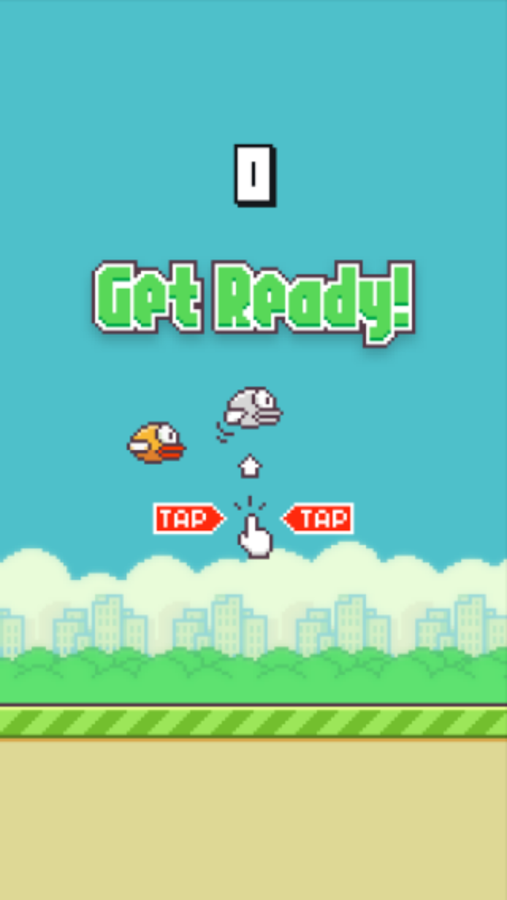'Flappy Bird' Game Deleted: Will The Popular App Return With OneClick Studios?
Trademark filings to obtain 'Flappy Bird' are currently in process.

Though “Flappy Bird” was removed from Apple iOS and Google Play stores earlier this month, several trademark filings from seven potential owners have surfaced. It looks like the companies and individuals are hoping to cash in on the mobile app’s massive success. The following list shows seven hopefuls who are looking to trademark developer Dong Nguyen’s creation.
adore kv, Inc (February 9th)
Neal Blaak and Alexander Prevoteau (February 9th)
Mad Engine, Inc (February 10th)
Mobile Media Partners doing business as Flappy Birds (February 10th)
Gabriel Joseph Harkham via Drew Alia (February 12th)
Olaes Enterprises, Inc (February 4th)
Jamal Aminy (February 11th)
OneClick Studios, a San Francisco-based three-man operation, appears to be in the lead. The company is actually pretty far along in the process of bringing the addictive “Flappy Bird” back to mobile devices. The game is fully developed and smartphone-ready, and the development company reportedly only formed approximately seven days ago.
Two individuals, Neal Blaak and Alexander Prevoteau, also filed for joint ownership of the trademark on Feb. 9.
“Flappy Bird” was published by Vietnam-based Gears Studio last May. At one point, the title was currently being downloaded 2 million to 3 million times per day and pulling in $50,000 in ad revenue daily in Google Play and Apple iOS stores. "Flappy Bird" received an iPhone update in May 2013 and an iOS6 update in September of last year. It topped the free category of downloadable games in the American and Chinese iTunes App Store at the end of January 2014.
As the game grew in popularity, criticism of “Flappy Bird” began to gain traction. Though Nguyen admitted he was a fan of early Nintendo games, many players and bloggers suggested he was more than a fan, as “Flappy Bird” was similar in many ways to 1985’s “Super Mario Bros.” Kotaku even called the mobile game “plagiarism” and “ripped art.” Another blogger questioned whether the massive success of “Flappy Bird” was due to the use of bots, or fake accounts run by computers to falsely create downloads or reviews. “Looking at some of the top apps in the store by Nguyen, I hate to say it, but it looks really similar to bot activity,” Carter Thomas, of online marketing company Bluecloud Solutions, said in a recent blog post. "Of course, I can’t prove this, and there are strong cases for lots of different potential growth strategies, but I do want to bring this up to engage a discussion and get industry leaders to weigh in with some analysis so that we can find out how this happened."
On Feb. 9, Nguyen removed the game, claiming it was due to the amount of criticism and negative press it was receiving. “I am sorry, 'Flappy Bird' users, 22 hours from now, I will take 'Flappy Bird' down. I cannot take this anymore,” Nguyen tweeted on Saturday. He also denied that he was asked to remove the app by Nintendo, a speculation made by many gaming sites. “It is not anything related to legal issues. I just cannot keep it anymore,” he posted on Feb. 8.
Since its deletion, knockoffs of the title are appearing everywhere -- and Apple and Google are cutting the cord on “Flappy Bird” clones. Both companies are taking action against eager developers hoping to make a quick buck from the post-frenzy of “Flappy Bird," banning knockoffs from the iOS and Google Play stores.
"There is doubt surrounding OneClick’s future ... however, as any further development on original titles would likely be fueled by the money they’re hoping this game will bring in," said Phandroid regarding the company's potential acquisition. "As simple as the game may be, OneClick says their name came from the principal that 'a game does not have to be conceptually complex to be fun and successful.'"
Would you play an updated version of "Flappy Bird?" Leave a comment below or Tweet me!
© Copyright IBTimes 2024. All rights reserved.



















